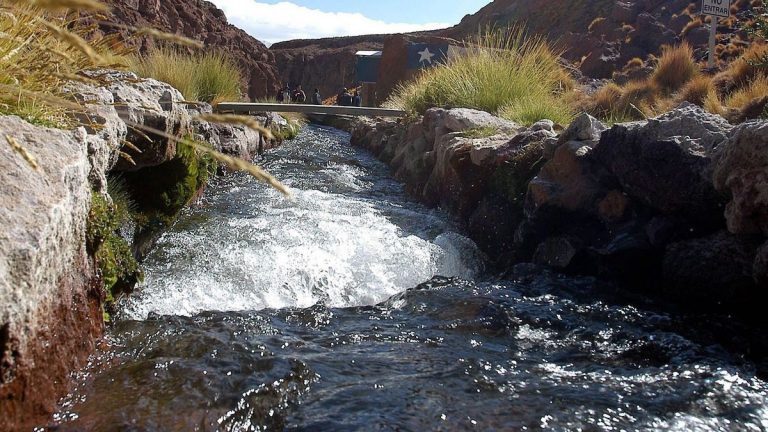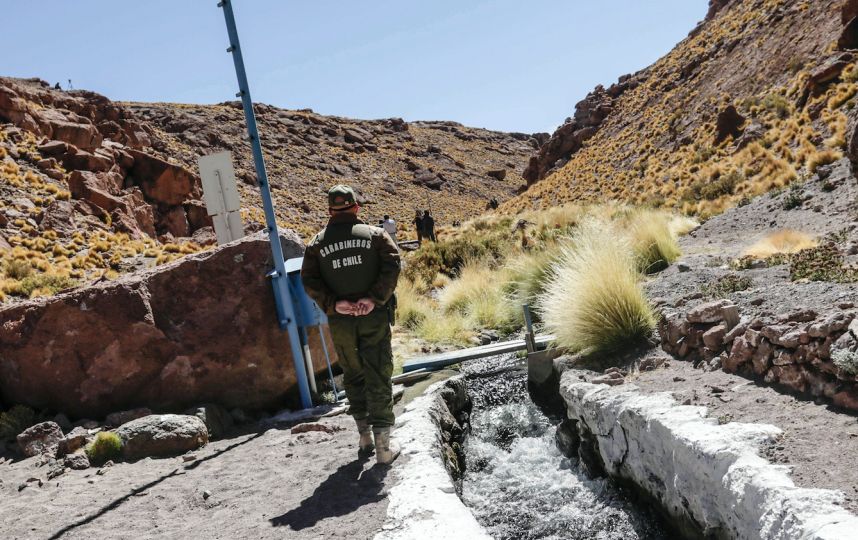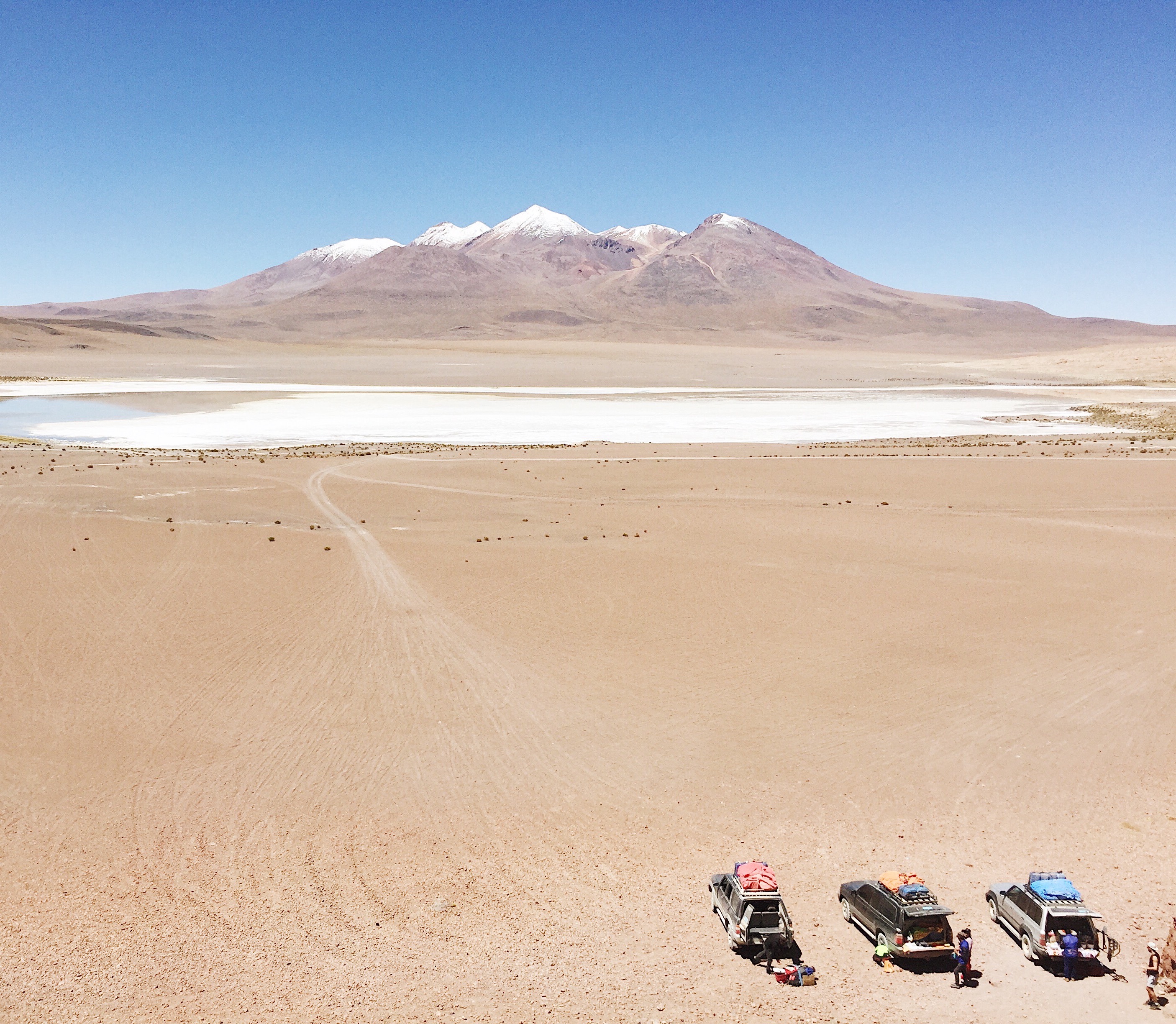Welcome to DU!
The truly grassroots left-of-center political community where regular people, not algorithms, drive the discussions and set the standards.
Join the community:
Create a free account
Support DU (and get rid of ads!):
Become a Star Member
Latest Breaking News
General Discussion
The DU Lounge
All Forums
Issue Forums
Culture Forums
Alliance Forums
Region Forums
Support Forums
Help & Search
Latin America
Related: About this forumU.N.'s highest court says Bolivia, Chile close to resolving long-running river dispute

Ximena Fuentes, Chile’s vice minister for foreign affairs, second left, Chilean lawyer Carolina Valdivia Torres, right, and Bolivian Foreign Minister Rogelio Mayta, second right, talk at the International Court of Justice in The Hague on Thursday, where the U.N.'s top court ruled on a dispute about a river that crosses Chile’s and Bolivia’s border.(Peter Dejong / Associated Press)
BY MOLLY QUELL
ASSOCIATED PRESS
DEC. 1, 2022 4:55 PM PT
THE HAGUE — The International Court of Justice on Thursday found little to rule on in a long-running dispute over a small river that flows from Bolivia to Chile, as the Latin American neighbors had mostly resolved their conflict during the proceedings.
The United Nations’ highest court spent most of the hourlong hearing explaining that the two countries’ legal claims over the Silala River — a short waterway in the Atacama Desert — were “without objection” as both countries have now agreed on how the water should be managed.
“It is an international watercourse, as both parties now agree,” said American judge Joan E. Donoghue, who serves as the court’s president. Bolivia had initially rejected this designation since international law requires international water resources to be managed cooperatively.
Chile brought the claim to the Hague-based court in 2016, arguing that Bolivia was violating international water laws by blocking the flow of the river. During hearings in April, Bolivia claimed the waterway isn’t a river at all, but rather a series of underground springs forced above ground by Chilean construction.
More:
https://www.latimes.com/world-nation/story/2022-12-01/un-court-bolivia-chile-close-to-resolving-river-dispute






Small river in the Atacama Desert, which is the driest place on earth.
The Driest Desert in the World

The Atacama Desert (Spanish: Desierto de Atacama) is a desert plateau in South America covering a 1,600 km (990 mi) strip of land on the Pacific coast, west of the Andes Mountains. The Atacama Desert is the driest nonpolar desert in the world, and the second driest overall, just behind some very specific spots within the McMurdo Dry Valleys[2][3][4][5] as well as the only hot true desert to receive less precipitation than the polar deserts, and the largest fog desert in the world. Both regions have been used as experimentation sites on Earth for Mars expedition simulations. The Atacama Desert occupies 105,000 km2 (41,000 sq mi),[6] or 128,000 km2 (49,000 sq mi) if the barren lower slopes of the Andes are included.[7] Most of the desert is composed of stony terrain, salt lakes (salares), sand, and felsic lava that flows towards the Andes.
The desert owes its extreme aridity to a constant temperature inversion due to the cool north-flowing Humboldt ocean current and to the presence of the strong Pacific anticyclone.[8] The most arid region of the Atacama Desert is situated between two mountain chains (the Andes and the Chilean Coast Range) of sufficient height to prevent moisture advection from either the Pacific or the Atlantic Ocean, a two-sided rain shadow.[9]
Despite modern views of the Atacama Desert as fully devoid of vegetation, in pre-Columbian and colonial times a large flatland area there known as Pampa del Tamarugal was a woodland, but demand for firewood associated with silver and saltpeter mining in the 18th and 19th centuries resulted in widespread deforestation.[10][A]
More:
https://en.wikipedia.org/wiki/Atacama_Desert
InfoView thread info, including edit history
TrashPut this thread in your Trash Can (My DU » Trash Can)
BookmarkAdd this thread to your Bookmarks (My DU » Bookmarks)
0 replies, 407 views
ShareGet links to this post and/or share on social media
AlertAlert this post for a rule violation
PowersThere are no powers you can use on this post
EditCannot edit other people's posts
ReplyReply to this post
EditCannot edit other people's posts
Rec (1)
ReplyReply to this post